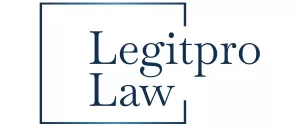- within Tax topic(s)
- with Finance and Tax Executives
- in United States
- with readers working within the Retail & Leisure and Law Firm industries
Section 138 of the Negotiable Instruments Act, 1881 (NI Act) addresses the offense of cheque dishonour due to insufficient funds.The Supreme Court's ruling in Sanjabij Tari v. Kishore S. Borcar1, delivered on 25th September 2025 by Justice Manmohan and Justice N.V.Anjaria, marks a crucial advancement.It reinforces the legal principles outlined in Sections 118 and 139 of the NI Act.Additionally, it clarifies the relationship between cash transactions and tax regulations.Most importantly, it establishes clear directives for expedited trials and resolutions.This ensures the reliability of cheques in commerce, striking a balance between equity and efficiency in an evolving digital economy.
Legal Background
Section 138 of the NI Act makes it a criminal offense to dishonour a cheque due to insufficient funds or exceeding banking arrangements, carrying a penalty of up to two years' imprisonment, a fine upto twice the amount of the cheque, or both. Established in 1989, this provision seeks to bolster confidence in negotiable instruments and promote financial responsibility.Legal actions initiated under this section are deemed quasi-criminal and can be resolved through compounding as per Section 147, allowing out of court settlements.
Sections 118(a) and 139 outline significant presumptions: Section 118(a) assumes that a negotiable instrument was issued for valid consideration, whereas Section 139 assumes that the holder received the cheque to satisfy a legally enforceable debt or liability.These presumptions shift the onus of proof to the accused to rebut them based on a preponderance of probabilities, as determined in the case of Rangappa v. Sri Mohan2.
Before this ruling, courts encountered numerous challenges in handling Section 138 cases.The backlog of cases resulted in delays, leading to demands for procedural reforms.Defendants frequently presented weak defences, such as the absence of consideration or the financial incapacity of the complainant, lacking adequate evidence to challenge the presumptions.A significant concern involved the relationship with Section 269SS of the Income Tax Act, 1961, which prohibits cash loans exceeding ₹20,000.In P.C.Hari v. Shine Varghese3, the Kerala High Court ruled that such violations rendered the debt unenforceable under Section 138, creating uncertainty.Revisional courts occasionally re-evaluated evidence, overstepping their constrained jurisdiction as defined under Section 397 of the CrPC, 1973 (now Section 440 of the BNSS, 2023).
This case addresses these issues by firmly affirming the presumptions, declaring that violations of the Income Tax Act do not undermine the enforceability of the NI Act, and providing comprehensive guidelines for the swift resolution and compounding of cases.
Facts of the Case
In 2006, the appellant, Sanjabij Tari, advanced a loan of ₹6,00,000 to the respondent, Kishore S. Borcar.The respondent issued a cheque dated 15th January 2007 for this amount, which was dishonoured upon presentation due to insufficient funds.The appellant issued a statutory notice under Section 138(b) of the NI Act, to which the respondent failed to respond.Subsequently, the appellant lodged a complaint with the JMFC in Panaji, Goa.On 30th April 2007, the Magistrate convicted the respondent, imposing a sentence of one year of simple imprisonment and a fine of ₹6,00,000, along with equivalent compensation to the appellant.The Sessions Court affirmed this conviction on 17th September 2008.The respondent then filed an ex parte revision petition with the Bombay High Court in Goa, which acquitted him on 16 April 2009, citing the appellant's alleged lack of financial capacity and asserting that the cheque was merely a blank security instrument for a bank loan.In response, the appellant submitted a special leave petition to the Supreme Court, contesting the High Court's re-evaluation of evidence and its dismissal of statutory presumptions.
Supreme Court's Findings
The apex court allowed the appeal, overturned High court's acquittal, and reinstated trial court's conviction and sentence. It outlined key findings and provided procedural guidelines to be followed across the country.
- Applying and Challenging the Legal Assumptions under Sections 118 and 139 NI Act
The Court determined that the respondent's acknowledgment of cheque issuance initiated the presumptions outlined in Sections 118(a) and 139.These assumptions suggest that the cheque was issued in exchange for consideration and to settle a debt.The respondent did not successfully challenge these presumptions, as his assertion of the appellant's financial inability was not backed by evidence such as bank statements.The appellant's rationale regarding the origins of the funds was deemed credible.Furthermore, the lack of a response to the statutory notice further solidified the presumption of liability.This maintains the presumptions as vital safeguards, requiring substantial evidence from the accused.
- Validity of Cash Loans Over ₹20,000 Despite Section 269SS of the Income Tax Act
The Court overturned the ruling of the Kerala High Court in P.C.Hari v. Shine Varghese, asserting that a breach of Section 269SS does not nullify the transaction under Section 138 or rebut the presumptions established by the NI Act. Penalties imposed under Section 271D of the Income Tax Act are independent and do not affect the enforceability of cheques.This guarantees that NI Act proceedings concentrate on the transactional integrity, ensuring that tax non-compliance does not mitigate liability.
- Limits on Review Powers: No Re-examination of Facts
The High Court's involvement was considered to exceed its revisional authority as outlined in Section 397 CrPC.Such courts are permitted to rectify only jurisdictional mistakes or gross injustices, rather than reassessing evidence, according to Bir Singh v. Mukesh Kumar4.The findings of the lower courts, based on unchallenged assumptions, exhibited no signs of perversity.The respondent's defence based on a blank cheque was dismissed as lacking in evidence.
- Dismissing the Blank Cheque Defence and Other Procedure Notes
The assertion that the cheque was provided as blank security was rejected as an afterthought, lacking support from the notice response or any other documentation, in accordance with M.M.T.C.Ltd.v. Medchl Chemicals & Pharma (P) Ltd5.The Court allowed the application of the Probation of Offenders Act, 1958, in suitable first-offence cases to prevent imprisonment.
Impact of Judgement
The ruling addresses the 20% share of section 138 cases within criminal pendency, reinforcing presumptions to reduce frivolous defences and clarifying tax law interactions for effective enforcement. New procedural regulations set to take effect on 1st November 2025, encompass:
- Mandatory electronic and dasti summons, not just traditional summons under the BNSS to avert evasion
- Requirement for complaint summaries to enable quick cognizance.
- Elimination of pre-cognizance summons so as to encourage summary trials within the initial examination of the accused
- Promotion of interim compensation orders as per Section 143A.
- Emphasis on prioritising post-summons hearings for negotiation discussions.
- Creation of monitoring dashboards in the Delhi, Mumbai, and Kolkata High Courts, alongside quarterly updates on alternative dispute resolution.
- All district courts to establish secure QR methods or UPI links to facilitate accused persons to make direct payments for cheque amounts, thus promoting compounding at the initial stage.
The updated compounding framework imposes graduated costs to promote early resolutions:
|
Stage of Settlement Request |
Cost as % of Cheque Amount |
|
Before Accused's Evidence |
0% |
|
After Accused's Evidence to Judgment |
5% |
|
Appeal Stage () |
7.5% |
|
Review/Appeal Stage |
10% |
These costs are directed to legal services authorities. The measures aim to reduce disposal times, easing judicial burdens and enhancing commercial confidence.
Conclusion
In the case of Sanjabij Tari v. Kishore S. Borcar, the Supreme Court rectifies a revisional error while offering strong backing for the enforcement of the NI Act.It reinforces the presumptions outlined in Sections 118 and 139, distinguishes tax compliance from cheque responsibilities, and sets forth practical procedures.This is in harmony with the aims of the statute amidst increasing caseloads.With the rise of digital transactions in India, the ruling upholds the integrity of cheques through balanced punishments and resolution strategies.
Footnotes
1 2025 INSC 1158
2 (2010) 11 SCC 441
3 (2025 SCC OnLine Ker 5535)
4 (2019) 4 SCC 197
5 (2002) 1 SCC 234
The content of this article is intended to provide a general guide to the subject matter. Specialist advice should be sought about your specific circumstances.


